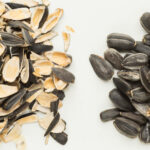Apple cider vinegar, made by fermenting the juice of crushed apples, is a versatile substance used in cooking, cleaning, and even as a natural remedy for various health conditions. This article explores the potential health benefits of apple cider vinegar, backed by research, while also considering the limitations and risks associated with its use.
Potential Health Benefits
Weight Management
Apple cider vinegar may aid in weight management. A 2018 study involving 39 participants found that those who consumed 1 ounce of apple cider vinegar daily, along with reducing their calorie intake by 250 calories, experienced significant reductions in body weight, body mass index (BMI), hip measurements, visceral fat, and appetite. Maintaining a healthy weight can lower the risk of conditions such as high blood pressure, type 2 diabetes, cardiovascular disease, and certain cancers.
Type 2 Diabetes Management
Some studies suggest that apple cider vinegar can help manage type 2 diabetes. In a 2019 study, 110 participants with type 2 diabetes consumed either a placebo or half an ounce of apple cider vinegar mixed with water during dinner for three months. Those who took apple cider vinegar saw significant reductions in fasting blood sugar and hemoglobin A1C (HbA1C) levels. Lower levels of these markers are crucial for reducing the risk of diabetes complications, including eye disease, nerve damage, cardiovascular issues, and more.
Heart Health
Apple cider vinegar might improve heart health by influencing cholesterol levels. Research indicates that consuming 1 ounce of apple cider vinegar daily can reduce triglycerides and total cholesterol while increasing high-density lipoprotein (HDL) cholesterol, the “good” cholesterol. For individuals with obesity or type 2 diabetes, even half an ounce of apple cider vinegar daily may offer similar benefits.
Varicose Veins
Topical application of apple cider vinegar may help alleviate symptoms of varicose veins. A 2016 study showed that people who applied apple cider vinegar to their varicose veins experienced reductions in pain, cramps, swelling, itching, and anxiety about their appearance. These improvements can enhance mobility and overall quality of life. However, caution is advised, as apple cider vinegar can cause chemical burns in some cases.
Antimicrobial Properties
Apple cider vinegar contains acetic acid, which has antifungal and antibacterial properties. This makes it a natural disinfectant capable of killing germs like Escherichia coli (E. coli), Staphylococcus aureus (staph), and Candida albicans (a type of yeast). While promising in test tubes, more research is needed to determine its effectiveness in treating infections in humans.
Nutritional Profile
One tablespoon of apple cider vinegar provides minimal calories and no significant amounts of fat, sodium, carbohydrates, fiber, added sugars, or protein. However, it does contain antioxidants, specifically phenolic compounds, which can fight inflammation and protect cells from damage that leads to disease.
Safety Considerations
Short-Term Use
Using apple cider vinegar for short-term health management, such as up to 12 weeks, is generally considered safe. However, long-term use poses risks, including potassium deficiency, which can lead to symptoms like abnormal heart rhythms, fatigue, muscle damage, weakness, tingling, numbness, and constipation. Prolonged use has also been linked to an increased risk of osteoporosis.
Potential Risks
Using apple cider vinegar as a medical treatment comes with potential risks. It can harm the esophagus, tooth enamel, and skin. It can also interact with medications, especially those that lower blood sugar or potassium levels. People taking herbal supplements should consult a healthcare provider to avoid negative interactions.
Special Precautions
There isn’t enough reliable evidence to determine if apple cider vinegar is safe for medicinal use during pregnancy or breastfeeding. Experts recommend using it only as a food ingredient during these times.
Tips for Using Apple Cider Vinegar
- As an Ingredient: Add apple cider vinegar to salad dressings, marinades, pickled vegetables, soups, tea, smoothies, and baked goods.
- Dilute with Water: To avoid harm to the esophagus and tooth enamel, dilute apple cider vinegar with water if advised by a healthcare provider.
- Moderate Usage: Consult a healthcare provider on the appropriate amount to use, as excessive consumption can lead to tooth erosion and other health issues.
- Skin Application: If applying topically, test on a small area first to check for adverse reactions and consult a healthcare provider.
By considering both the benefits and risks, apple cider vinegar can be incorporated safely into your health regimen. Always consult with a healthcare provider before starting any new treatment.
A Quick review
Apple cider vinegar, derived from fermented apple juice, is a versatile substance used for culinary, cleaning, and health purposes. Research suggests it can aid in weight management, diabetes control, and heart health. Topical application may reduce varicose vein symptoms, and its acetic acid content provides antimicrobial properties. While short-term use is generally safe, long-term consumption can lead to potassium deficiency and other risks. Always dilute it before oral or topical use and consult a healthcare provider before incorporating it into your routine












